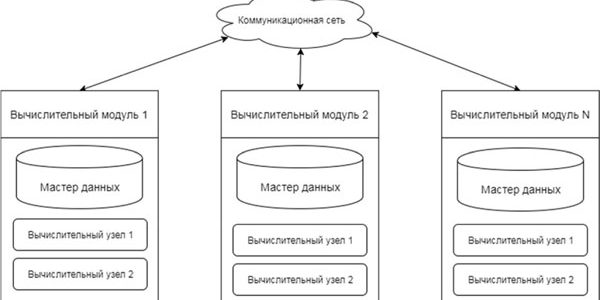In the article deals with the organization processing of measuring information is considered, namely the analysis of the technical state and object of analysis. As objects of analysis, space vehicles, a booster rocket and space systems in general are considered. The system processing of measuring information, modules of the system and their functional purposes is described. Modes of interaction of modules with each other. The requirements and limitations for modules and the system as a whole are given. The ways of solving problems arising at the design and implementation stages of systems are described.
A description is given of the architecture of the software developed for a distributed data processing system related to the dataflow class. The distributed system allows to effectively analyze the measuring information. The description of the system combines the need to focus on the data stream, while it is implemented on existing hardware solutions and can be easily scaled at a low cost.

